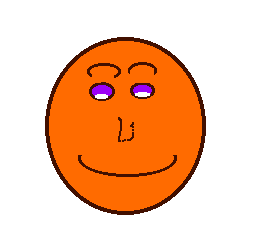What is the web?
- It's a particular way of finding, transmitting and presenting information on the internet.
- It's part of the internet.
- It's a bunch of computers acting as a worldwide network.
It includes:
- Web servers. One example is the JCOMM server, which holds most of the schools's web pages and the software necessary to run a web site. The address of this computer is jcomm.uoregon.edu
- Data transmission lines. If you connect to the web at home by modem, your phone line is part of the internet. At the university, we connect to the web through high-speed data lines.
How does the web work?
I don't really know, but I don't really know how my VCR works either.
What is a web page?
It's nothing more than a file that includes words and HTML commands. The file is in text (ASCII) format.
What is HTML?
Hypertext Markup Language. It's a special coding language that tells browser programs how to display text, photos, links, etc., on computer screens. "Markup language" sounds pretty technical. In truth, markup languages have been around for a long time. Newspapers and magazines have used them for computer typesetting for decades. What's different about HTML is that it allows you to work with hypertext links in a multimedia environment.
What is multimedia?
I don't want to open that can of worms. Oh, all right. Media that use different types of content, such as text, images, audio and video. For practical reasons, the web as a communications medium is still a lot like print. Text and still images are the dominant types of content.
What is a browser?
It's a computer application that interprets HTML commands and presents multimedia content. Netscape 4.7 is one. Microsoft Internet Explorer 5.0 is another.
How do you create web pages?
There are different ways:
- By using a standard word processor
Many people don't realize that you can write web pages in any word processing program that lets you save the file as plain text or ASCII. You can write them in Word or Word Perfect, or a very basic word processor, such as Mac's Simple Text, etc. You need to know some HTML to do this. Knowing some HTML is not a bad thing.
- By using special software
There are web-page-writing programs that let you create pages without knowing HTML, but most people who use these programs also know enough HTML to tweak the pages. Some word processors, such as Microsoft Word, let you save in HTML, but here too, some knowledge of HTML is helpful because word processor HTML is often clunky and might not do exactly what you want.
What is a link?
It's a connection to another web page, a picture, an audio or a video file, etc...
Can I do pictures?
Silly question. Of course you can. You can display images by using one set of HTML commands,  and you can link to an image file by using the same syntax you use to link to other web pages. Use the View Source command if you want to see the coding that makes it happen.
and you can link to an image file by using the same syntax you use to link to other web pages. Use the View Source command if you want to see the coding that makes it happen.
Most image files are either "JPEG" files or "GIF" files. Loosely speaking, these represent different ways of compressing the very large amounts of data that digital pictures are made of.
Is it easy to learn HTML?
Yes and no. HTML is a set of commands designed to control what appears on the screen. Writing simple web pages is easy because you need to know just a few basic commands. Writing more complicated ones, with tables, frames, imagemaps, Java scripts and other fancy features, is tougher.
Many people find HTML coding complicated because they are used to word processors that have made the coding that controls typography and layout invisible. If you want to learn some basic HTML coding, it isn't that difficult, and there are plenty of self-teaching resources available on the net. I have linked to some of them on my Cyberjournalism links page. Incidentally, one of the best ways to learn how HTML makes things happen on the screen is to examine web pages by using the "View Source" command.
Can I write web pages at home?
You can create web pages at home and display them if you have Netscape or another browser. Instead of opening a page as a location, as you do when you surf the net, you open your page as a file. One hint: If you want to create a related set of web pages, keep all of the web page files in the same folder or directory (HTML files and image files). This makes it easy to create links back and forth between them: You just need to specify a filename, not an entire internet address.
Why should I care about this stuff?
Because many, if not most, media organizations have created web editions or are thinking about creating them. Most of these companies are looking for trained journalists to work in their online operations. That means job opportunities.
 and you can link to an image file by using the same syntax you use to link to other web pages. Use the View Source command if you want to see the coding that makes it happen.
and you can link to an image file by using the same syntax you use to link to other web pages. Use the View Source command if you want to see the coding that makes it happen.